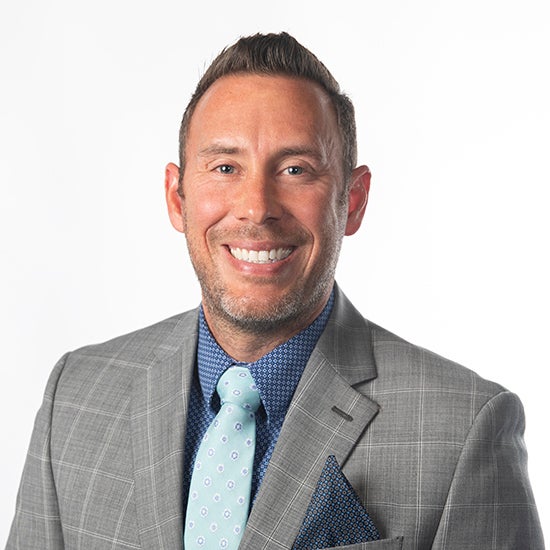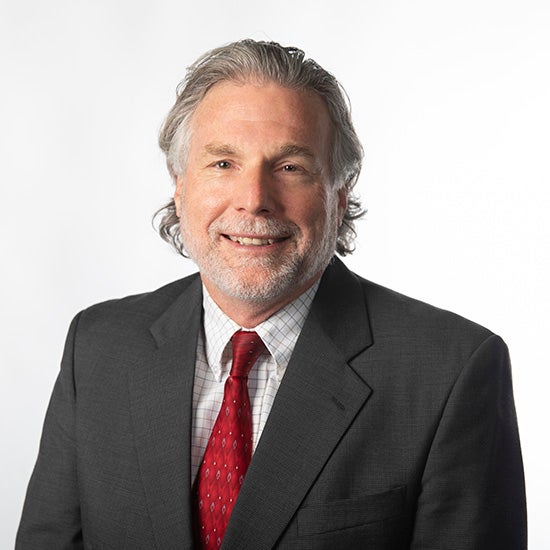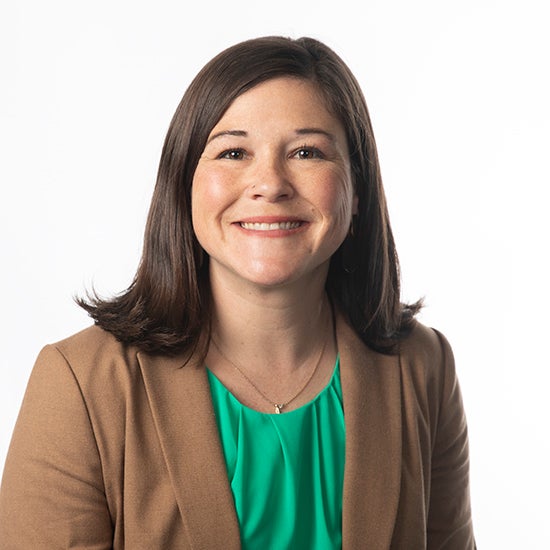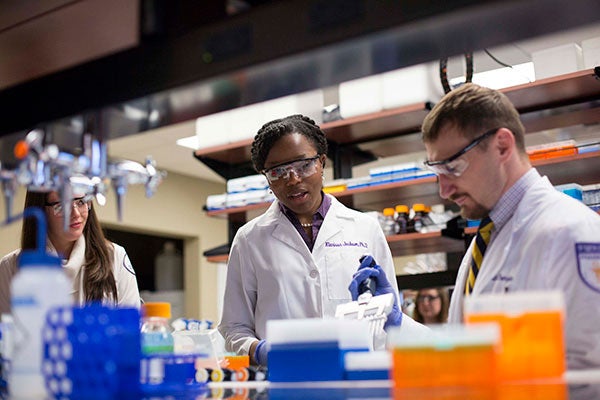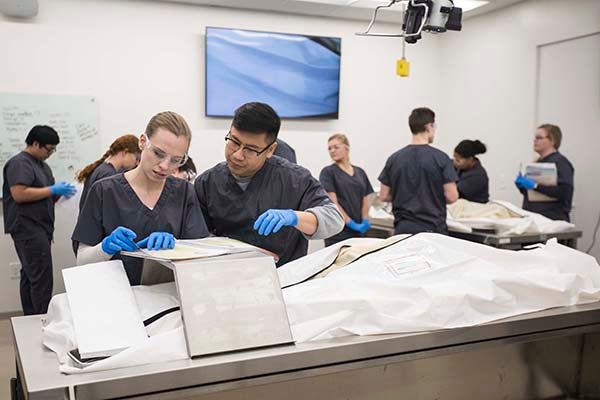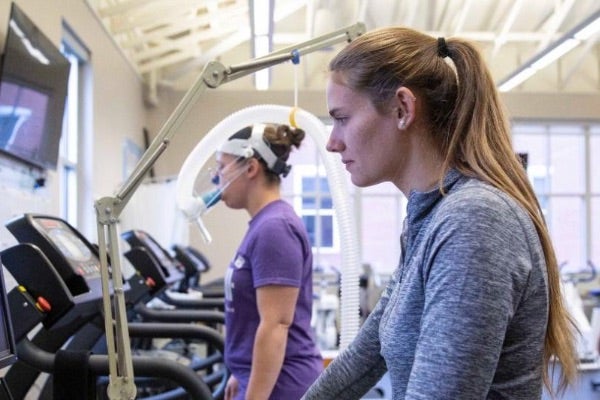
Exercise and Human Performance
Program Overview
There’s never been a better time for exercise professionals in today’s world. Approaching human performance holistically by studying in a program that combines your areas of interest from the interrelated fields of exercise science, performance nutrition, business and psychology helps you set yourself apart in today's job market.
Gain expertise on how the body moves, functions and is fueled. Explore how to improve quality of life and performance for a variety of populations. Learn from our passionate and experienced faculty, surrounded by our state-of-the-art equipment and facilities.
Go on from here to have a lasting impact through a degree that is uniquely designed to accommodate your interests and abilities. Let us empower you— so you can empower your community.
Exercise and Human Performance Program Foundations
The curriculum features three aspects:
- Core courses offering advanced training in exercise physiology, organizational behavior, and research
- Focus areas based on your interest and expertise
- A culminating capstone (thesis or portfolio)
This framework allows for maximum flexibility, allowing you to forge your own unique path in preparing for your career aspirations.
Admissions Requirements
- Application with $50 nonrefundable fee
- Bachelor's degree, including prerequisites of 12 or more credit hours from Anatomy & Physiology, Biology, Chemistry, and/or Biochemistry
- Official transcripts from all schools in which a degree was conferred
- Minimum 2.75 cumulative grade point average on all undergraduate work
- Three recommendations, including at least one academic reference and one professional reference.
- An essay (maximum of 750 words) reflecting on 1) personal philosophy of exercise/human performance, 2) career aspirations, and 3) purpose, passion, faith, etc.
- Resume
- In-person (or virtual as needed) interview for finalists.
If mailed, send transcripts and forms to:
Graduate Studies in EXHP
Lipscomb University
One University Park Drive
Nashville TN 37204-3951
Tuition & Aid
Tuition and fees for the EXHP program are as follows:
36-hour program / $799 per credit hour*
*Note: The graduate tuition rates may increase annually, effective each summer semester.
Student to faculty ratio
Our Faculty
Career Paths
Exercise Physiologists
Exercise physiologists develop fitness and exercise programs that help patients recover from chronic diseases and improve cardiovascular function, body composition and flexibility.
Strength and Conditioning
These specialists conduct sport-specific testing sessions, design and implement safe and effective strength training and conditioning programs and provide guidance regarding nutrition and injury prevention based on scientific knowledge.
Wellness and Health Coaching
Wellness and health coaches utilize evidence-based conversation, clinical interventions and strategies to empower clients/patients to make healthy behavioral changes.
Nutritionists
Nutritionists are experts in the use of food and nutrition to promote health and manage disease. They advise people on what to eat in order to lead a healthy lifestyle or achieve a specific health-related goal.
Additional Schooling
When you graduate, you may also pursue one or more career paths that require additional education, such as becoming a physical therapist or physician’s assistant. You may go on to receive a doctorate in your field of choice. Your master’s degree will afford you a number of opportunities to reach even higher.
